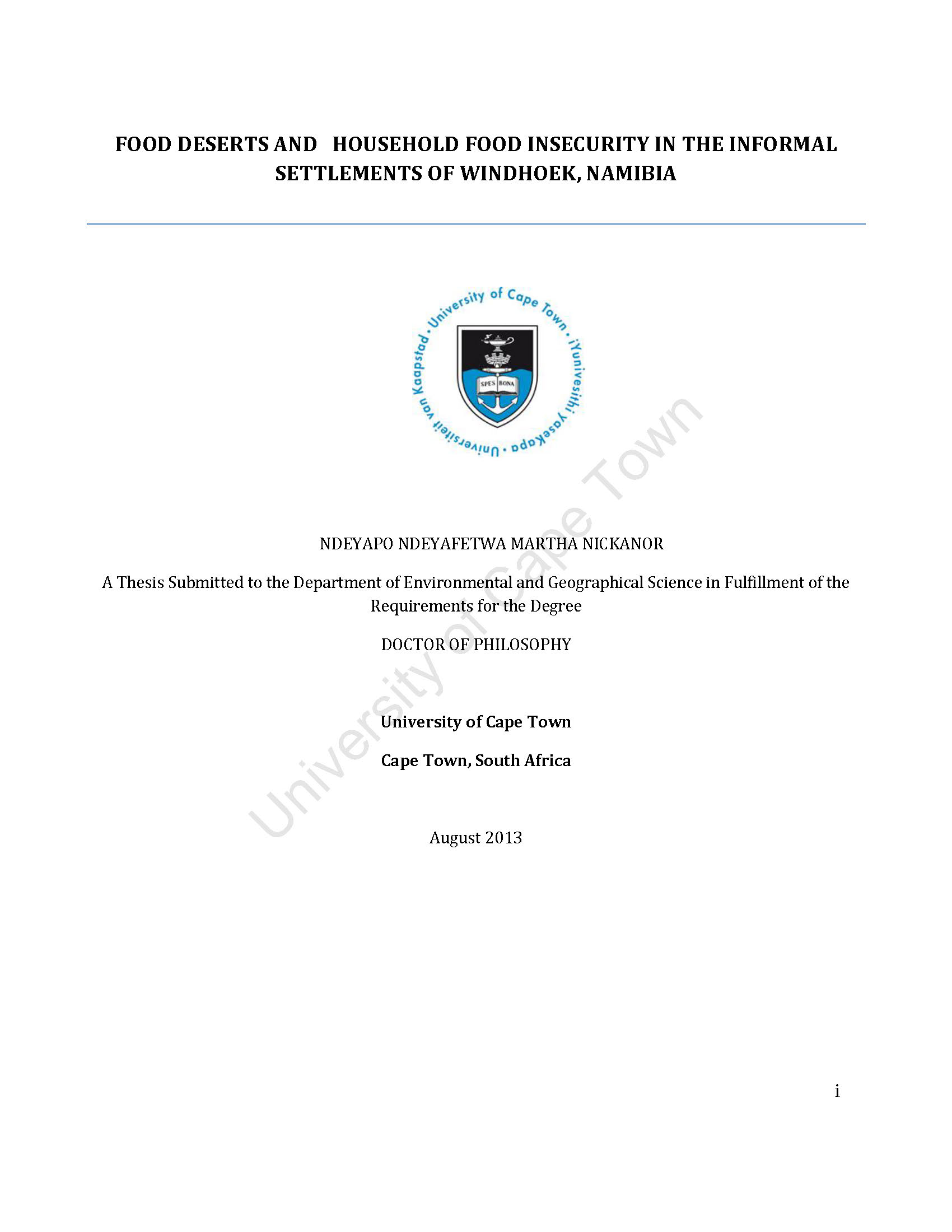– PhD Thesis –
Rapid urbanization and rising urban poverty characterize much of Sub-Saharan Africa in the 21st Century. Africa’s urban transition provides the context within which this thesis examines the causes and consequences of poverty and food insecurity in the growing informal settlements of Windhoek, Namibia. Rapid urbanization in Windhoek has been accompanied by limited industrialization with few job opportunities in the formal employment sector. Moreover, the informal sector has not been able to absorb the ever rising volume of migrants from the rural areas, increasing urban poverty and food insecurity among the most vulnerable group in the urban environment: female-centred households in informal settlements. The informal settlements in Windhoek are an ideal site in which to examine the struggle for food security and other basic needs by poor women. Despite the accumulated literature on the food security of female-centred households, much of this work has focused on the rural sector and has paid little attention to the contribution of women to food security in the urban areas, and the strategies they adopt to eke out a living. This study combines qualitative and quantitative research methods in order to understand the factors that determine the food security status of female-centred households and to explore their strategies to access food and build resilience to food insecurity. Firstly, the thesis demonstrates that female-centred households in the informal settlements are poorer and more food insecure than all other types of household. Secondly, these households source food from a variety of sources including supermarkets, the informal food economy and rural-urban food transfers. Urban agriculture is completely unimportant as a food source. Thirdly, formal food sources such as supermarkets may offer cheaper quality food but they are located too far from the informal settlements for regular use. Fourthly, female-centred households rely heavily on the informal food sources, both as consumers and as a source of income for their own households. The informal food economy is dominated by women who find it extremely difficult to access formal sector jobs. Fifthly, food borrowing, sharing of food with neighbours and consumption of food provided by neighbours are increasingly important food sources in coping with food shortages. This thesis also addresses the broader question of whether the informal settlements of this African city qualify as “food deserts” and whether this concept (developed to describe inner-city neighbourhoods in Europe and North America) helps to shed light on the food security situation in Namibia. The thesis concludes that the concept needs to be redefined to be appropriate to African realities. The fundamental problem in the African city is not lack of spatial access to formal sector outlets such as supermarkets. Supermarkets are distant but the informal economy ensures that sufficient and diverse food is available in the informal settlements. In Windhoek’s food deserts, as one respondent noted, the problem is not food but income.

